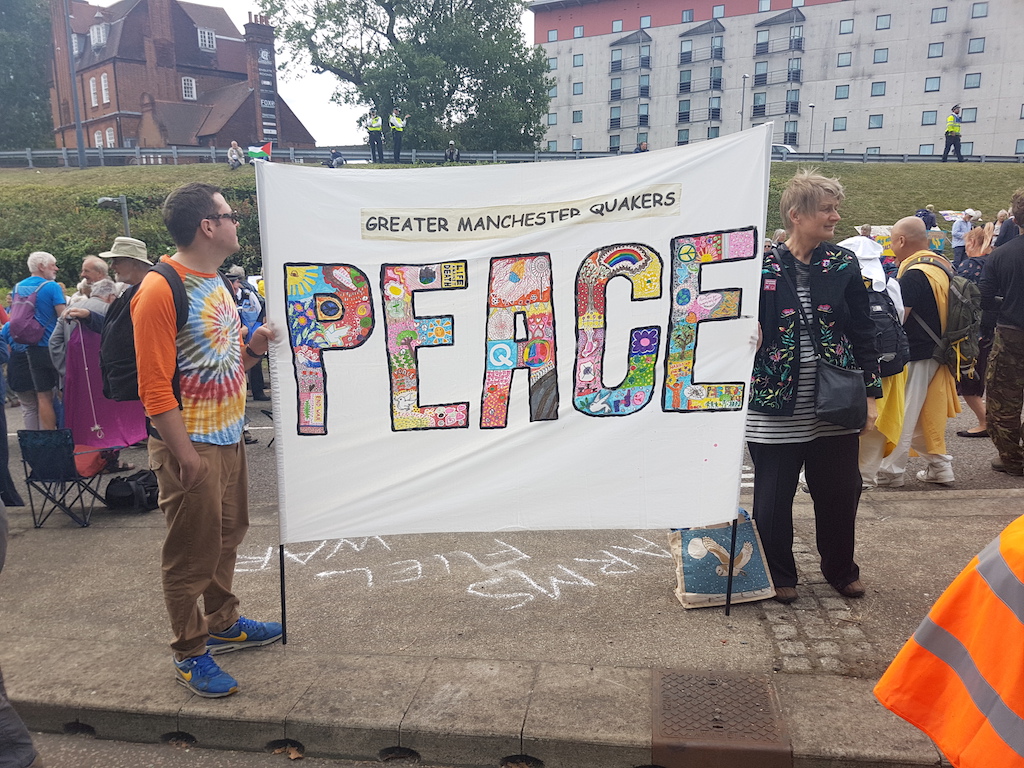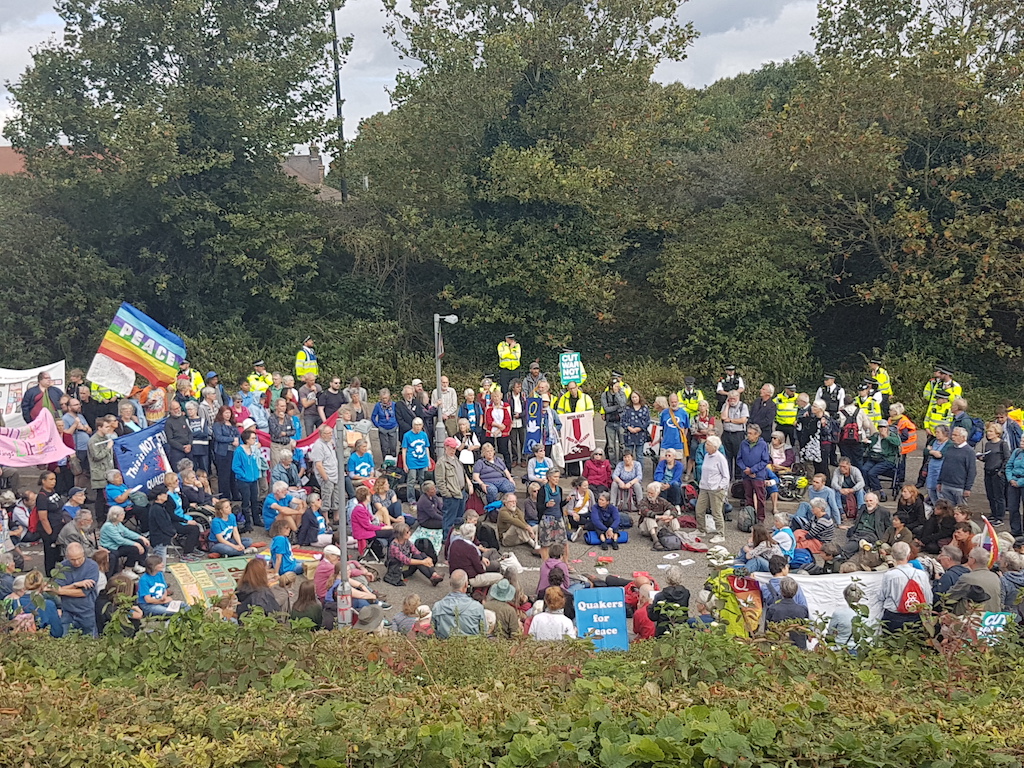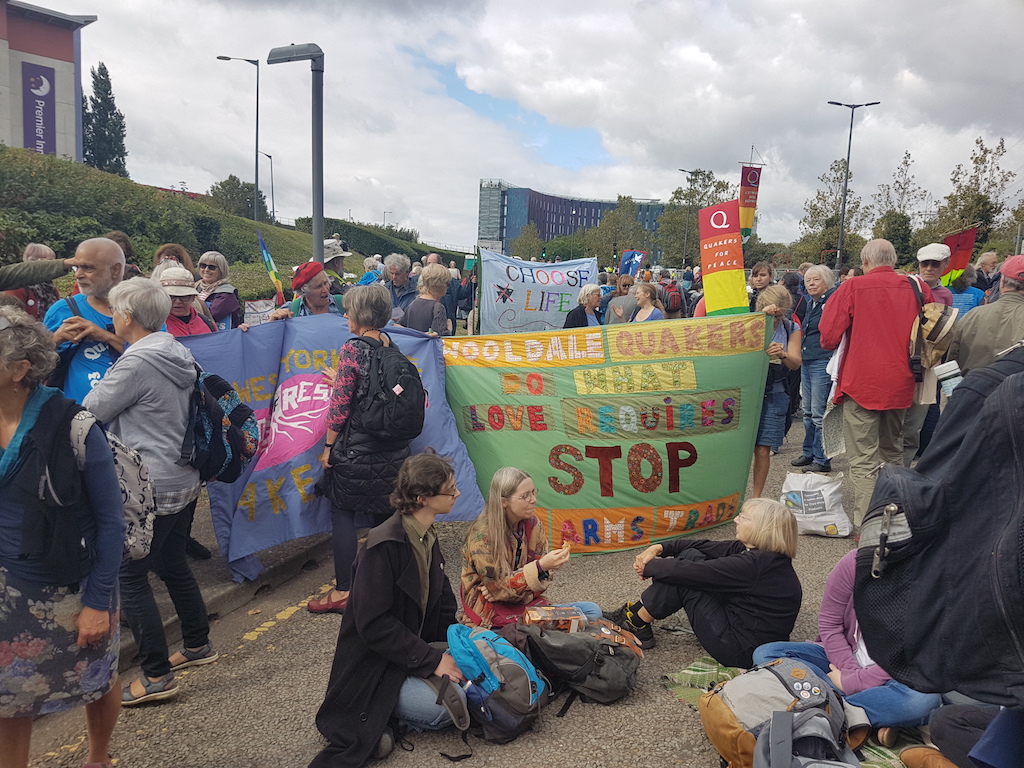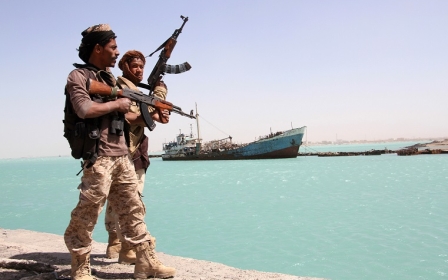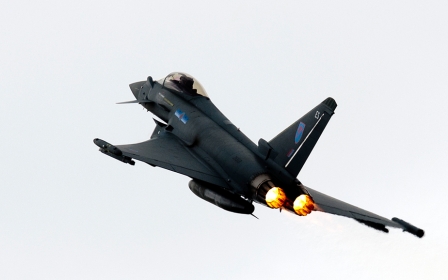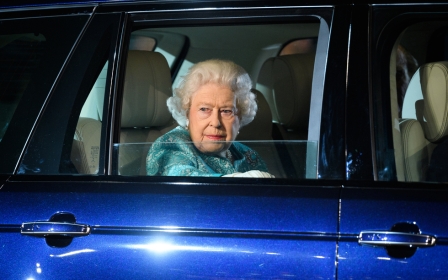Faith leaders slam UK arms fair as protesters block entrance to exhibition
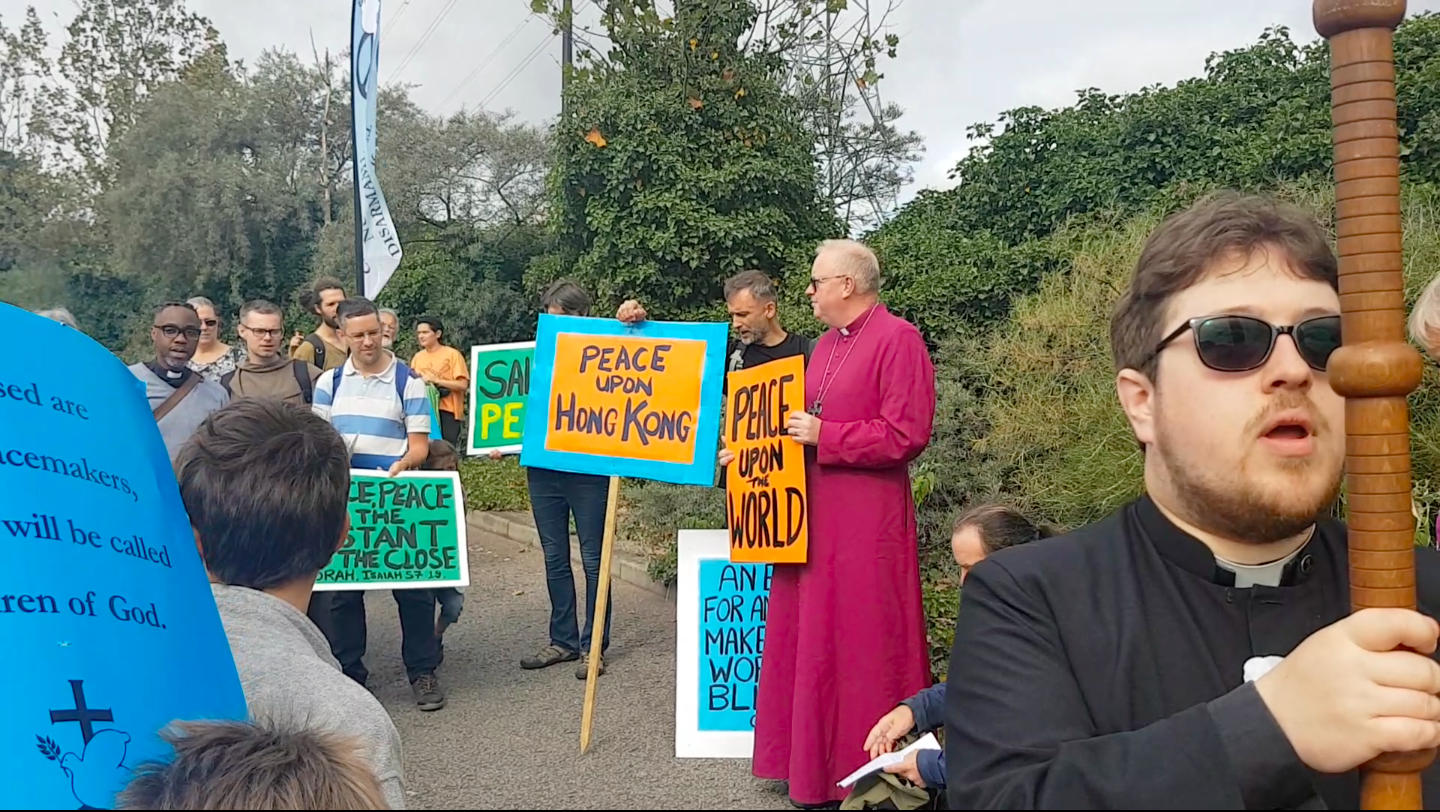
Demonstrators blockaded the entrance to the venue for Britain's largest arms fair on Tuesday as an array of British faith leaders condemned the fair as a "blot on the moral landscape".
Scores of demonstrators from numerous religious denominations gathered from early in the morning outside the ExCel centre in east London's Docklands district as preparations began for the Defence and Security Equipment International (DSEI) arms fair, an annual event backed by the British government.
The demonstration, titled "No Faith in War", specifically highlighted religious objections to the arms trade and came in the wake of a rare intervention by senior British faith leaders condemning the arms fair, which takes place between 9 and 13 September.
Those expected to attend this year's fair include Saudi Arabia’s state-owned arms company despite a UK court ruling earlier this year that arms sales to the country were unlawful in light of allegations of war crimes committed by the Saudi-led coalition in the conflict in Yemen.
Among those criticising the arms fair and backing the protests were the former Archbishop of Canterbury Rowan Williams and senior Orthodox Rabbi Herschel Gluck, who on Friday supported a joint statement issued by faith leaders condemning the arms fair as a "blot on the moral landscape".
“I think like all sane human beings, we realise the destruction, the death, the tragedy that’s caused by war and conflict and therefore we want to reduce the possibility and severity of any conflict,” Gluck told Middle East Eye, in a telephone interview on Tuesday.
Gluck, a longtime conflict mediator and interfaith advocate, said those who support conflict and war “should reflect upon the consequences of their actions” and said there was “always an imperative” for religious leaders to speak out about such issues.
“There has been some criticism, but it has been greatly outweighed by support and by people saying ‘this is something we have been waiting to hear and we’re very grateful that someone has spoken up'."
Tuesday morning’s protest was largely dominated by Christian groups, including Catholics, Anglicans and Quakers, who were primarily responsible for blocking the road leading up to the ExCel centre’s east gate.
'At the moment, we’re sliding down the slippery slope and becoming kind of the greasy, dodgy neighbour to the rest of the world'
- Roger Morris, the Bishop of Colchester
A group of Anglicans - including a number of bishops - sung hymns, prayed and held vigil on the road, while also holding placards citing religious objections to conflict.
“I want to see an end to this - not just an end to it happening in London, but an end to it happening in the UK, full stop,” said Roger Morris, the Bishop of Colchester, who had travelled to London from the city in the east of England for the event.
“At the moment, we’re sliding down the slippery slope and becoming kind of the greasy, dodgy neighbour to the rest of the world and I want us to be known for better things than flooding the world with weapons of destruction and devastation that just cause havoc throughout the world.”
Apart from Christian groups, a number of Buddhists were present on Tuesday morning, while the afternoon was reserved for Muslim prayers and Sufi performances.
The DSEI is supported by the UK’s government’s Defence and Security Organisation (DSO) and features representatives from an array of private companies and governments, including many engaged in routine human rights abuses, according to anti-arms trade campaigners and human rights organisations.
In addition to Saudi Arabia, others attending include Bahrain, Egypt and Israel, who will be sending an official state delegation for the first time following a UK government invite.
According to the DSEI website, its official international partner for the Arms fair is the United Arab Emirates, another member of the coalition in Yemen whose National Pavilion will take “centre stage” at the event.
In June 2019, arms trade campaigners won a legal challenge in the Court of Appeal ruling “unlawful” arms sales to the UAE and Saudi Arabia over their involvement in the war in Yemen. The war has seen tens of thousands killed and the country pushed to the brink of famine.
The government subsequently banned all new arms sales licences for equipment that could be used in Yemen to Saudi Arabia, the UAE, Bahrain, Egypt and Kuwait.
A new United Nations report released on Tuesday suggested the United States, Britain and France are among countries that may be complicit in war crimes in Yemen by arming and providing intelligence and logistics support to the Saudi-led coalition that starves civilians as a war tactic.
The situation in Yemen has spurred outcry internationally and seen a number of countries halt arms sales to the Saudi-led coalition, who entered the country in 2015 to target Iran-aligned Houthi rebels and spurred activism in countries around the globe involved in supporting the coalition.
Dave and Lynn Morris, a husband and wife Quaker couple, said they had never been to a sit-down protest where there was a risk of arrest, but felt they had to become more active as they got older.
“There comes a point, particularly when you gets a particular stage in life, I think (and we’re no spring chickens), where you think you’ve got very little to lose - but our grandchildren have,” said Lynn.
Middle East Eye propose une couverture et une analyse indépendantes et incomparables du Moyen-Orient, de l’Afrique du Nord et d’autres régions du monde. Pour en savoir plus sur la reprise de ce contenu et les frais qui s’appliquent, veuillez remplir ce formulaire [en anglais]. Pour en savoir plus sur MEE, cliquez ici [en anglais].


